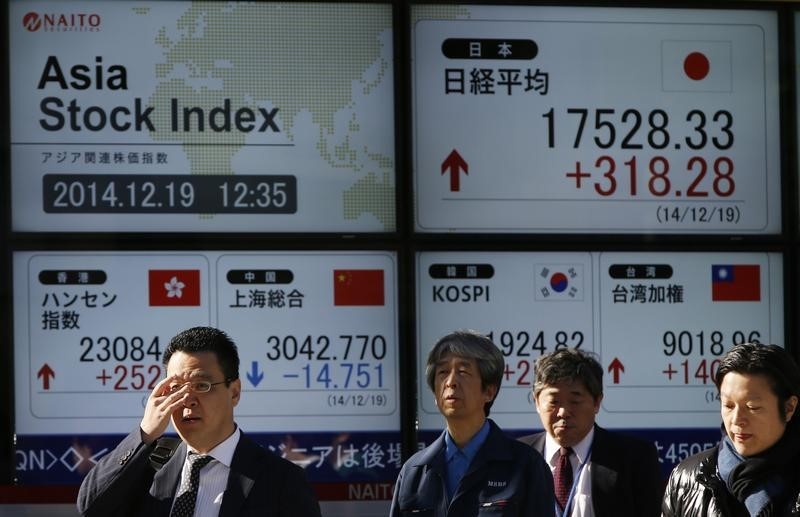Investing.com - The forthcoming week could bring crucial economic indicators from Asia that may potentially reshape the fiscal strategies of its two largest economies. Investors will closely observe China's retail sales, industrial output, and housing price data while keeping an eye on Japan's GDP and inflation rates.
Further attention will be given to New Zealand and the Philippines as they deliver their decisions regarding interest rates. Additionally, India's inflation statistics are also expected to make headlines along with key corporate earnings reports emerging from Chinese giants such as Tencent Holdings Ltd (HK:0700), Lenovo Group (HK:0992) CNOOC Ltd (HK:0883), and JD.com (HK:9618).
Monday might witness a significant jolt in economic data coming out of India, where annual consumer price inflation is predicted to spike up sharply in July at 6.4% compared to 4.8% previously recorded; wholesale price deflation is also anticipated to slow down considerably.
Following last week’s events where NASDAQ reported its first consecutive weekly decline this year, causing iShares MSCI All Country Asia ex Japan ETF (NASDAQ:AAXJ) a loss of 2%, investors are likely adopting a cautious stance which could turn into outright pessimism post-Monday when Country Garden Holdings Company Ltd (HK:2007) - China's largest private developer - announced it would halt trading for its eleven domestic bonds.
With shares hitting an all-time low after failing to pay bond coupons worth $22.5 million due August 6th coupled with liabilities around $200 billion and potential losses reaching up to $7.6 billion during H1 alone – investor speculation about Beijing succumbing under pressure grows stronger amidst official confirmation of deflationary economy experiencing weakest credit impulse since 2009.
Subpar financial figures later this week may compel authorities into action whereas Japanese inflation information will keep both investors' eyes peeled as well as Bank of Japan (BOJ). Economists predict the core CPI Inflation rate dropping slightly from June’s figure at 3.3% down to July’s estimated value of 3%.
Depending upon these findings we might see market reactions anticipating either gradual alterations in BOJ ‘yield curve control’ policy if numbers dip further or stickier inflation inciting the opposite response making yen more vulnerable especially considering the recent slump against euro, marking a new fifteen-year low.
This year hasn't been too kind for Asian stocks primarily because concerns over China struggling with a sluggish growth rate accompanied by deflationary pressures and capital outflows have cast long shadows over markets resulting in flat performance by Chinese blue-chip stocks while Hong Kong's Hang Seng Index dipped by four percent.
MSCI Asia ex-Japan equity index has now slumped consecutively past two weeks – a trend not witnessed since April showing a positive incline only twice over the past eight weeks.
